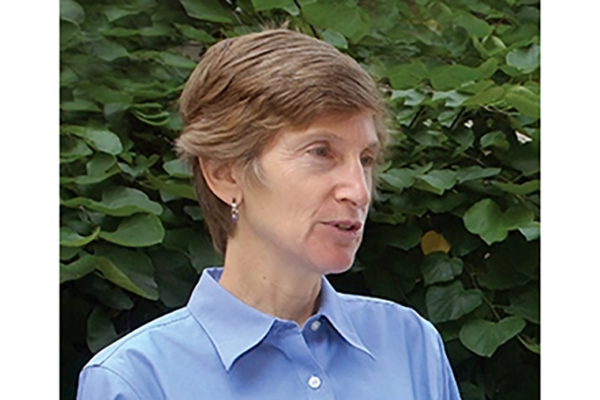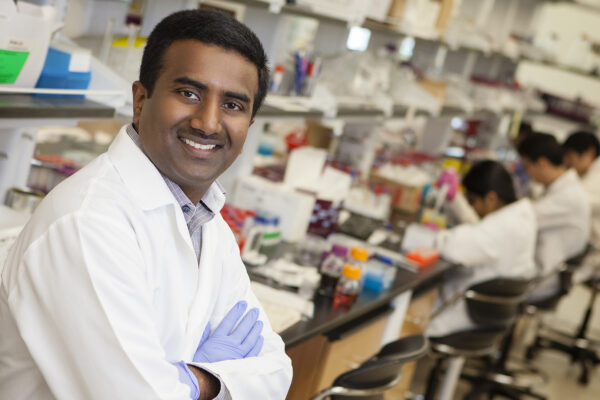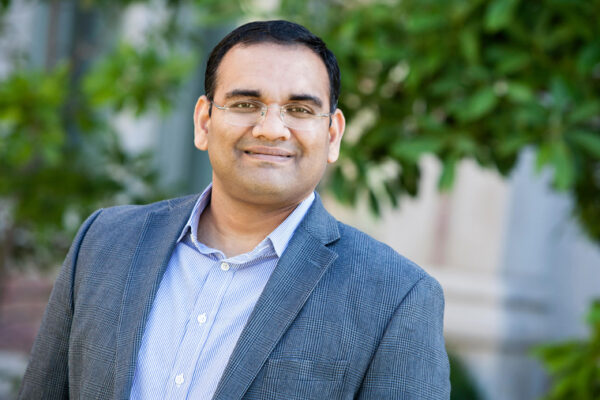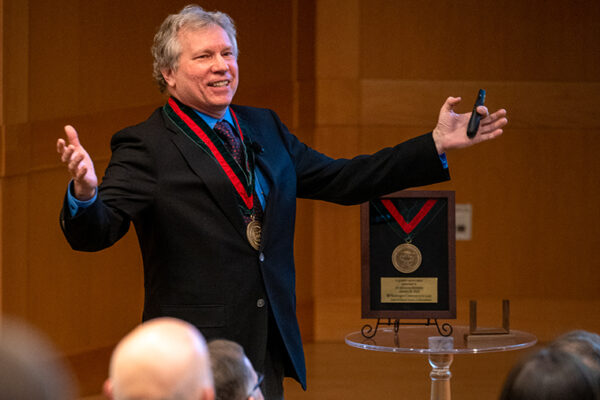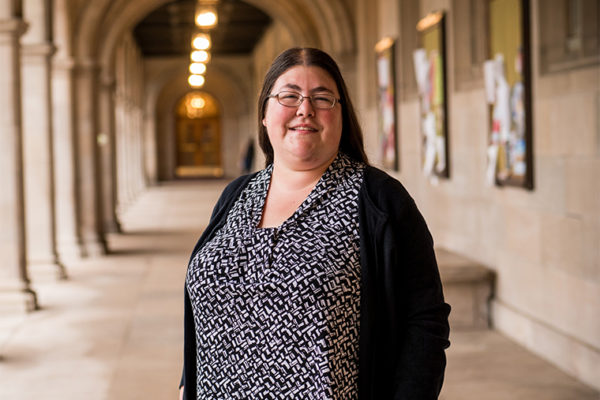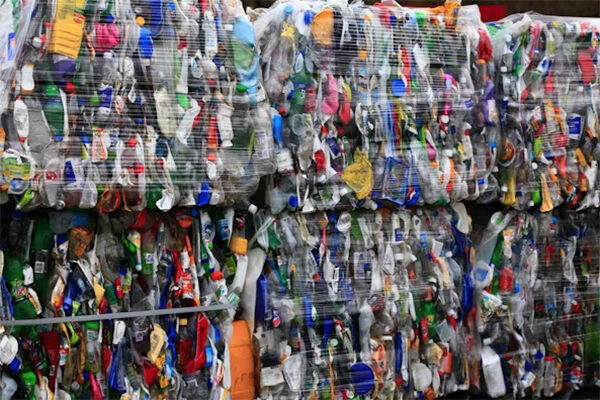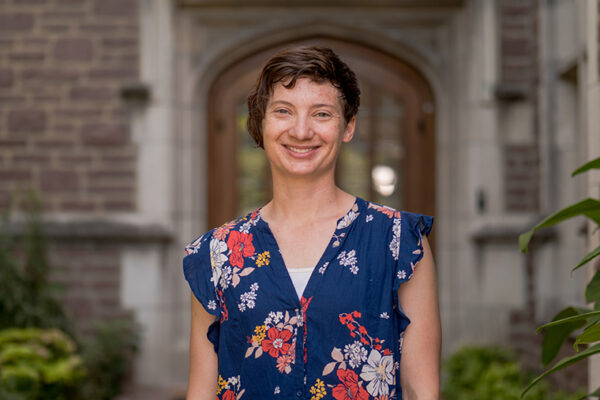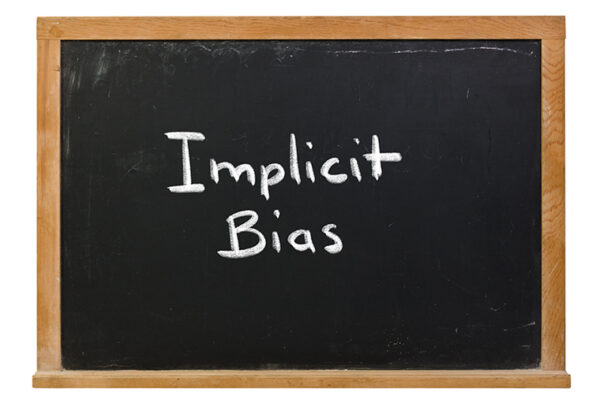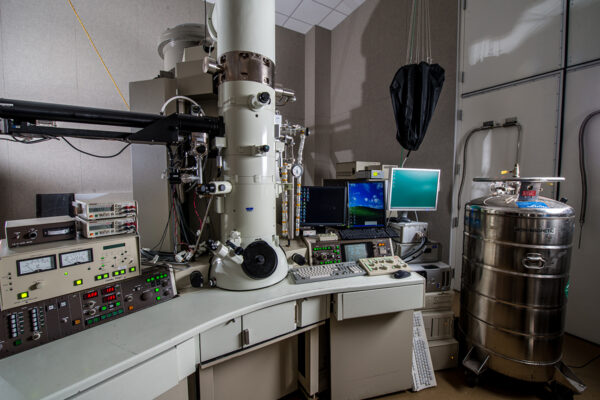Quantum tunneling to boost memory consolidation in AI
A team of researchers at the McKelvey School of Engineering has developed an energy-efficient way to consolidate long-term memories on a tiny chip. Shantanu Chakrabartty and members of his lab developed a device that mimics the dynamics of the brain’s synapses.
Lipeles receives lifetime achievement award
Maxine Lipeles, a professor emerita of law and former director of the School of Law’s Interdisciplinary Environmental Clinic, will receive the Lifetime Achievement and Career Award at the 2023 Albert P. and Blanche Y. Greensfelder Forum on Feb. 11.
New diagnostic test is 1,000 times more sensitive than conventional tests
Thinking beyond COVID-19, a team led by Srikanth Singamaneni at the McKelvey School of Engineering developed a new point-of-care diagnostic test that is 1,000 times more sensitive than conventional rapid tests and can quantify concentrations of proteins.
Powering unmanned underwater vehicles
With a three-year $630,000 grant from the Office of Naval Research, researchers in the laboratory of Vijay Ramani at the McKelvey School of Engineering will develop, scale and test highly efficient unitized regenerative fuel cells to be used by the U.S. Navy.
Turner named inaugural James McKelvey Professor of Engineering Education
Jay Turner, an internationally renowned environmental researcher, has been named the inaugural James McKelvey Professor of Engineering Education in the McKelvey School of Engineering.
Jackrel awarded grant to study proteins linked to ALS
Funding from the National Institutes of Health (NIH) will help Meredith Jackrel, an assistant professor of chemistry in Arts & Sciences, and her team study Matrin-3, a poorly understood protein linked to several neurodegenerative disorders.
Foston, Kamilov win energy grant to upcycle plastic waste
Marcus Foston and his co-investigator, Ulugbek Kamilov, both faculty members at the McKelvey School of Engineering, received a $577,780 grant from the U.S. Department of Energy to study ways to “upcycle” plastic waste.
Penczykowski wins NSF CAREER award
Rachel Penczykowski, an assistant professor of biology in Arts & Sciences, won a prestigious National Science Foundation grant for early-career faculty who excel at mentorship and research. The award will fund a project investigating infestations of a common plant pathogen in the St. Louis area.
Commonly used police diversity training unlikely to change officers’ behavior, study finds
New research from Calvin Lai, in Arts & Sciences, suggests that the daylong implicit bias-oriented training programs now common in most U.S. police departments are unlikely to reduce racial inequity in policing.
Foston, Zhang to use mussel feet as inspiration for underwater adhesives
Marcus Foston, an associate professor at the McKelvey School of Engineering, is one of 20 awardees selected by the Environmental Molecular Sciences Laboratory, a U.S. Department of Energy facility, for this year’s exploratory call.
Older Stories

